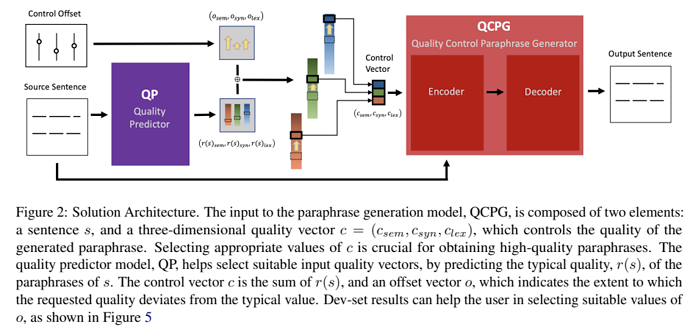This paper proposes a quality controlled method fro paraphrase generation by encoding desired similarities of syntax, lexical, semantic as special tokens to a T5 model. For prediction where similarities are unknown, they use a regression model to predict the base similarity vector and allow user to add an offset to it. They conducted extensive analysis of how the offset affects the similarities of generated phrases with input sentence. They suggest the user to brute force all offset points to maximize the expected average similarity on devset to obtain the optimal control offset. So this offset is domain specific but not sentence specific.
Comments
- Well, maybe it’s a good analysis paper. For the method, I feel it’s a little bit under expectation.
- Just a trivial note, this is an unsupervised method. But we could be able to mine parallel sentences using their similarity metrics.
Rating
- 5: Transformative: This paper is likely to change our field. It should be considered for a best paper award.
- 4.5: Exciting: It changed my thinking on this topic. I would fight for it to be accepted.
- 4: Strong: I learned a lot from it. I would like to see it accepted.
- 3.5: Leaning positive: It can be accepted more or less in its current form. However, the work it describes is not particularly exciting and/or inspiring, so it will not be a big loss if people don’t see it in this conference.
- 3: Ambivalent: It has merits (e.g., it reports state-of-the-art results, the idea is nice), but there are key weaknesses (e.g., I didn’t learn much from it, evaluation is not convincing, it describes incremental work). I believe it can significantly benefit from another round of revision, but I won’t object to accepting it if my co-reviewers are willing to champion it.
- 2.5: Leaning negative: I am leaning towards rejection, but I can be persuaded if my co-reviewers think otherwise.
- 2: Mediocre: I would rather not see it in the conference.
- 1.5: Weak: I am pretty confident that it should be rejected.
- 1: Poor: I would fight to have it rejected.
0 voters

